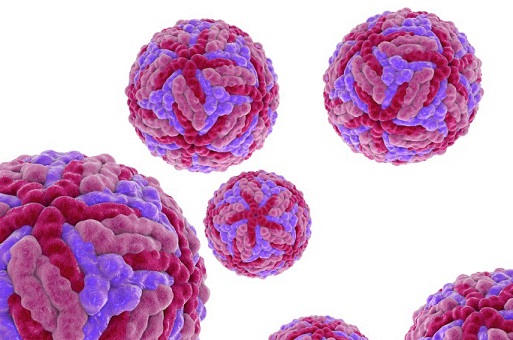Nikhil Prasad Fact checked by:Thailand Medical News Team Jul 09, 2024 9 months, 2 weeks, 2 days, 21 hours, 33 minutes ago
Dengue News: Dengue fever, a mosquito-borne viral infection, affects millions of people worldwide each year. While many experience mild symptoms, a significant number suffer from severe, sometimes fatal, complications. This
Dengue News report delves the findings of a study review led by researchers from Singapore that also involved scientist from USA, UK and Sri Lanka that explored the complex interplay between the immune and hematologic systems during dengue infection, shedding light on both the biological mechanisms at play and their clinical implications.
 Immuno-Haematologic Aspects of Dengue Infection - An In-Depth Look
Understanding Dengue Fever
Immuno-Haematologic Aspects of Dengue Infection - An In-Depth Look
Understanding Dengue Fever
Dengue fever is caused by the dengue virus (DENV), which is transmitted by Aedes aegypti and Aedes albopictus mosquitoes. There are four serotypes of DENV, and infection with one serotype provides lifelong immunity only against that serotype, not the others. This partial immunity can complicate subsequent infections.
The Scope of the Problem
The incidence of dengue has surged in recent decades, with nearly 100 million new cases reported annually across more than 120 countries. While the majority of infections result in mild illness, severe dengue - also known as dengue hemorrhagic fever (DHF) or dengue shock syndrome (DSS)—poses significant health risks. Dysregulated immune responses are central to the development of severe dengue, particularly its hematologic manifestations.
Key Hematologic Manifestations
-Thrombocytopaenia
One of the hallmarks of severe dengue is thrombocytopaenia, a condition characterized by an abnormally low platelet count. This often leads to increased bleeding risks. Thrombocytopaenia typically develops within the first week of infection and resolves as the patient recovers. Researchers have identified several mechanisms contributing to thrombocytopaenia, including direct platelet destruction by the virus, immune-mediated destruction, and reduced platelet production due to bone marrow suppression.
-Coagulopathy
Coagulopathy, or impaired blood clotting, is another critical issue in severe dengue. Patients often exhibit prolonged clotting times, which can lead to severe bleeding. The dengue virus’s non-structural protein 1 (NS1) plays a crucial role by interfering with the activation of clotting factors, further complicating the body’s ability to form stable blood clots.
-Leucocyte Abnormalities
Leucocytes, or white blood cells, also exhibit significant abnormalities during dengue infection. These include both quantitative changes (like leucopenia) and qualitative changes (such as the presence of atypical lymphocytes). The involvement of various white blood cell types, including monocytes, macrophages, and lymphocytes, underscores the complexity of the immune response to dengue.
The Role of Immune Cells
-Monocytes and Macrophages
Monocytes and macrophages are among the primary targets of DENV. These cells play dual roles - while they are essential for the antiviral response, they also contribute to disease severity through mechanisms such as antibody-dependent enhancement (ADE), which facilitates viral entry into these immune cells.
Lymphocytes
Lymphocytes, particularly T cells and B cells, are pivotal in the body’s defense against dengue. Severe dengue is often associated with dysregulated T cell responses and impaired B cell function. Notably, T cell exhaustion and the production of non-neutralizing antibodies by B cells can exacerbate disease severity through ADE.
Neutrophils
Neutrophils, another type of white blood cell, exhibit both beneficial and detrimental roles in dengue. While they help contain the virus, excessive activation can lead to tissue damage and inflammation, worsening the patient’s condition.
Clinical Implications and Management
Effective management of dengue requires a nuanced understanding of these immuno-hematologic interactions. Currently, treatment is largely supportive, focusing on maintaining fluid balance and monitoring for complications like bleeding and shock. Blood product transfusions may be necessary in severe cases, but their use remains controversial due to the potential for adverse effects.
Challenges and Future Directions
Despite advancements in understanding dengue’s pathogenesis, many gaps remain. Key areas for future research include:
-Developing predictive models for severe dengue based on clinical and laboratory parameters.
-Investigating the potential of immunomodulatory therapies to mitigate severe disease.
-Exploring the role of the gut microbiome in dengue pathogenesis and its implications for treatment.
Conclusion
Dengue fever’s impact on the immune and hematologic systems is profound and complex. Understanding these interactions is crucial for developing better diagnostic, prognostic, and therapeutic strategies. Continued research and collaboration across disciplines are essential to improve outcomes for those affected by this challenging disease.
The study findings were published in the peer-reviewed journal: Viruses.
https://www.mdpi.com/1999-4915/16/7/1090
For the latest
Dengue News, keep on logging to Thailand Medical News.
Read Also:
https://www.thailandmedical.news/news/breaking-phytochemicals-and-herbs-malaysian-study-shows-that-catechin-from-cocoa-is-a-potential-antiviral-against-dengue-virus
https://www.thailandmedical.news/news/dengue-news-study-shows-that-denv-2-ns1-promotes-ampk-lkb1-interaction-to-activate-ampk-erk-mtor-signaling-pathway-to-induce-autophagy
